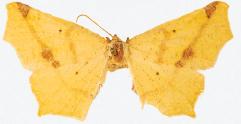
Antepione is a genus of moths in the family Geometridae, the geometer moths. The genus was described by Packard in 1876. They occur in North and Central America.
Pionenta is a genus of moths in the family Geometridae erected by Clifford D. Ferris in 2010.
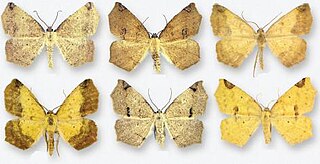
Antepione thisoaria, the variable antepione, is a moth of the family Geometridae. In Canada it is found from Nova Scotia to Manitoba, south into the United States south and west to the Gulf states, as well as Michoacan in Mexico and further south to Costa Rica and Guatemala.

Antepione imitata is a moth of the family Geometridae first described by Henry Edwards in 1884. It is known from western Texas, Colorado and New Mexico to southern Arizona and is probably also found in northern Mexico. It is generally associated with riparian canyons up to 1,830 meters.

Pionenta ochreata is a moth of the family Geometridae. It is known from Arizona and New Mexico.
Speranza austrinata is a species of geometrid moth in the family Geometridae. It was described by Douglas C. Ferguson in 2008 and is found in Central and North America.
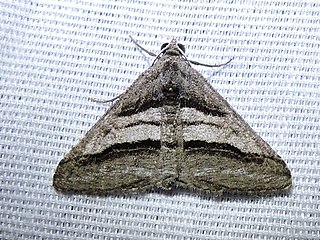
Digrammia atrofasciata is a species of geometrid moth in the family Geometridae. It was described by Alpheus Spring Packard in 1876 and is found in North America.
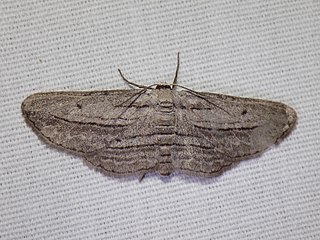
Glena quinquelinearia, the five-lined gray, is a species of geometrid moth in the family Geometridae. It was described by Alpheus Spring Packard in 1874 and is found in North America.

Neoterpes ephelidaria is a species of geometrid moth in the family Geometridae. It was described by George Duryea Hulst in 1886 and is found in North America.

Plataea californiaria is a species of geometrid moth in the family Geometridae. It was described by Gottlieb August Wilhelm Herrich-Schäffer in 1856 and is found in North America.
Homochlodes disconventa is a species of geometrid moth in the family Geometridae. It was described by Francis Walker in 1860 and is found in North America.

Metarranthis angularia, the angled metarranthis moth, is a species of moth in the family Geometridae. It was first described by William Barnes and James Halliday McDunnough in 1917 and it is found in North America.
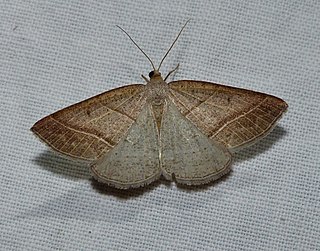
Petrophora subaequaria, the northern petrophora, is a species of geometrid moth in the family Geometridae. It was described by Francis Walker in 1860 and is found in North America.
Phrygionis auriferaria, the golden-winged palyas moth, is a species of geometrid moth in the family Geometridae. It is found in the Caribbean and North America.
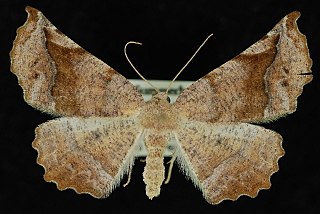
Caripeta hilumaria is a species of geometrid moth in the family Geometridae.
Metanema determinata, known generally as the dark metanema or dark-banded thorn, is a species of geometrid moth in the family Geometridae. It is found in North America.

Somatolophia haydenata is a species of moth in the family Geometridae first described by Alpheus Spring Packard in 1876. It is found in North America.
Iridopsis sanctissima is a species of moth in the family Geometridae first described by William Barnes and James Halliday McDunnough in 1917. It is found in Central and North America, where has been recorded from Nevada, Arizona, California and northern Baja California.
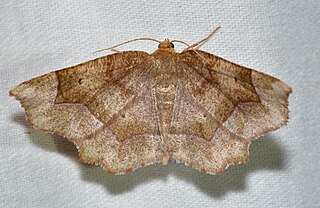
Metarranthis indeclinata, the pale metarranthi, is a species of geometrid moth in the family Geometridae. It is found in North America.
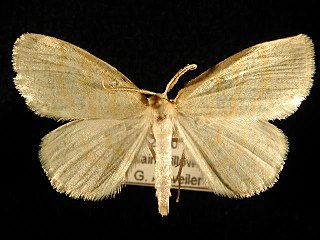
Cabera erythemaria, the yellow-dusted cream, is a species of geometrid moth in the family Geometridae. It is found in North America.
This page is based on this
Wikipedia article Text is available under the
CC BY-SA 4.0 license; additional terms may apply.
Images, videos and audio are available under their respective licenses.










